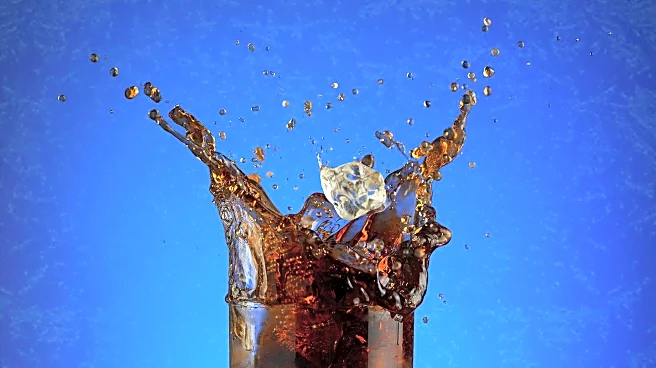What is the story about?
What's Happening?
A recent study conducted in Germany has found a potential link between soft drink consumption and the diagnosis of major depressive disorder (MDD), particularly in women. The study suggests that changes in the gut microbiota, specifically the abundance of the bacterial group Eggerthella, may play a role in this association. Researchers analyzed data from 405 patients with MDD and 527 healthy individuals, discovering that higher daily soft drink intake was associated with an increased risk of MDD, especially among female participants. The study highlights the role of diet in depression and suggests that the gut microbiome may be a key mediator in this relationship.
Why It's Important?
The findings of this study underscore the potential impact of dietary choices on mental health, particularly for women. As soft drinks are ultra-processed and rich in simple sugars, they may contribute to changes in gut microbiota that are linked to depression. This research adds to the growing body of evidence suggesting that diet and gut health are important factors in mental health. The study's results could influence public health policies and strategies aimed at reducing soft drink consumption to mitigate depressive symptoms, especially in women.
What's Next?
The study authors call for education and prevention strategies to reduce soft drink consumption as a means to address depressive symptoms. Further research is needed to validate the findings and explore the mechanisms behind the association between soft drink consumption and depression. Policymakers and health professionals may consider these findings when developing interventions to improve mental health outcomes.
Beyond the Headlines
The study raises questions about the broader implications of dietary habits on mental health and the role of gut microbiota as a mediator. It suggests the need for tailored prevention and intervention strategies that consider sex-specific differences in dietary impacts on mental health. The research also highlights the challenges in establishing causation in dietary studies, as depression itself may lead to increased intake of sugary foods and drinks.
















